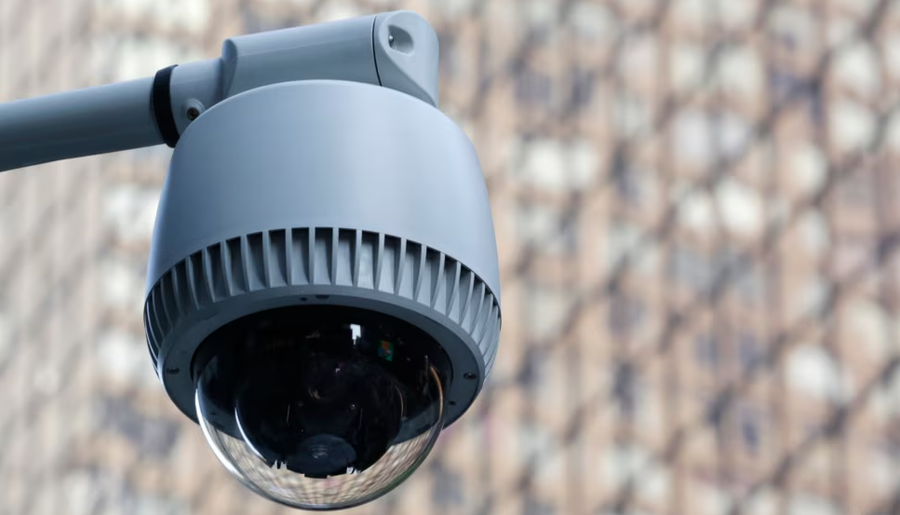
Cameras manufactured by a Chinese company, which was recently sanctioned by the United States, will be used at polling stations for the February 9 elections in Kosovo. The Kosovo company that supplied them to the Central Election Commission says there are no security concerns about the cameras, which it says comply with U.S. and Kosovo security requirements.
This year's parliamentary elections in Kosovo will bring an innovation in terms of monitoring the voting process, as, for the first time, there will be surveillance cameras in voting centers.
These cameras were contracted by the Central Election Commission at the end of 2024, through a tender process, where the winner was the company Besa Security, which offered a price of around 699 thousand euros.
This tender envisaged the supply of around 2,500 cameras, which will serve to monitor polling stations and to document possible irregularities during the process.
Besa Security told Radio Free Europe that, immediately after signing the contract last November, it had placed an order for these cameras manufactured by the Chinese company Uniview, for which it says it is the exclusive distributor for the territory of Kosovo.
There have been local media reports regarding these cameras, which, among other things, raise security concerns, because, since December 2024, Uniview has been under sanctions by the United States of America.
In this regard, the Kosovar distributor says that products manufactured by Uniview, and especially those it has supplied to the CEC, are in compliance with the US National Defense Authorization Act (NDAA).
"It is important to distinguish between sanctions imposed on certain entities, and restrictions affecting specific products. The products [we] supplied [to the CEC] do not fall under any restrictions that would prevent their use for civilian or institutional purposes," Besa Security's response to REL states.
The NDAA is a law that determines whether certain devices are considered dangerous to US national security.
The NDAA ban list includes several Chinese companies, including Hikvision and Dahua, but, so far, Uniview is not part of it.
The CEC has not responded to REL's questions regarding the contracting of these cameras.
But, in the tender conditions, the CEC also mentioned that the cameras must be compliant with the NDAA.
Meanwhile, during the presentation of plans for installing cameras in polling stations, the CEC assured that the cameras would not violate the privacy of voting.
"The installation of cameras at polling stations will be done by fully ensuring the secrecy of the vote, as they will be placed at the other end of the voting booths, and under no circumstances will they be able to record the voter's preference," said Valmir Elezi, CEC spokesperson, in April 2024.
Why was the Chinese company sanctioned by the US?
The sanctions imposed on Uniview are part of a broader campaign by the US government to sanction Chinese firms that produce surveillance technology, due to the "oppression of Uyghurs and other Muslim minorities in China's western region of Xinjiang."
"The role that the US government says Uniview played is in providing and, in some cases, specifically designing surveillance equipment and software that allowed the Chinese Communist Party to identify and monitor these ethnic groups," explains Reid Standish, a correspondent for Radio Free Europe in Prague who focuses on global issues related to China.
The crackdown on ethnic groups in Xinjiang began in 2017, and has intensified in subsequent years, targeting Uyghurs and other Muslim groups in western China, such as ethnic Kazakhs and Kyrgyz.
"All of China is heavily surveilled and relies on cameras and so-called 'Smart City' programs, but during this period, Xinjiang became one of the most surveilled places in the world," Standish continues.
"The [repression] campaign led to the creation of a vast system of camps in Xinjiang, where people from these ethnic groups were rounded up and placed in so-called 're-education' camps, where they were forced to learn Chinese, sing patriotic songs, learn Communist Party doctrine and, in many cases, were subjected to severe human rights violations," he explains.
Standish adds that "Washington and many Western countries have described this situation as a serious violation of human rights, while some international organizations have even called it ethnic cleansing."
REL has consistently reported on US sanctions against Chinese companies, including Dahua and Hikvision, which also produce surveillance cameras.
A REL investigation in 2022 found that security cameras manufactured by these two companies are located in many Kosovo institutions, including the Kosovo government building.
Kosovo authorities have not imposed sanctions on the import of this equipment.
How secure is Chinese surveillance technology?
Beyond the ethical issues that led to US sanctions, according to Standish, there are also technical issues that have been discovered with some Chinese manufacturers, which have often been cited as reasons not to use them in sensitive environments.
“The data concerns stem partly from the fact that surveillance systems rely to some extent on the camera manufacturer’s hardware and software,” says Standish.
He adds that end users can deploy their own storage and networking systems, but “the data still goes through software designed by the manufacturer, and is often sent to the company’s servers in China, via the cloud.”
"There is no evidence or case that shows these cameras were used for interference, much less to influence an election. But, at a time when the integrity of elections is a major issue in today's democracies, the vulnerabilities of various brands raise the possibility of external interference," Standish emphasizes.
Chinese companies are the world's leading suppliers of surveillance technology. Their cameras are inexpensive, easy to use and install, and offer high performance.
Companies like Hikvision and Dahua are partly owned by the Chinese state, while Uniview is a private company but has participated in Chinese government contracts to monitor minorities in Xinjiang.
So far, the US and the UK have blacklisted several Chinese technology companies.
However, most European countries have not imposed such bans, but have chosen to remove Chinese cameras from use in government or military institutions./ REL (A2 Televizion)











